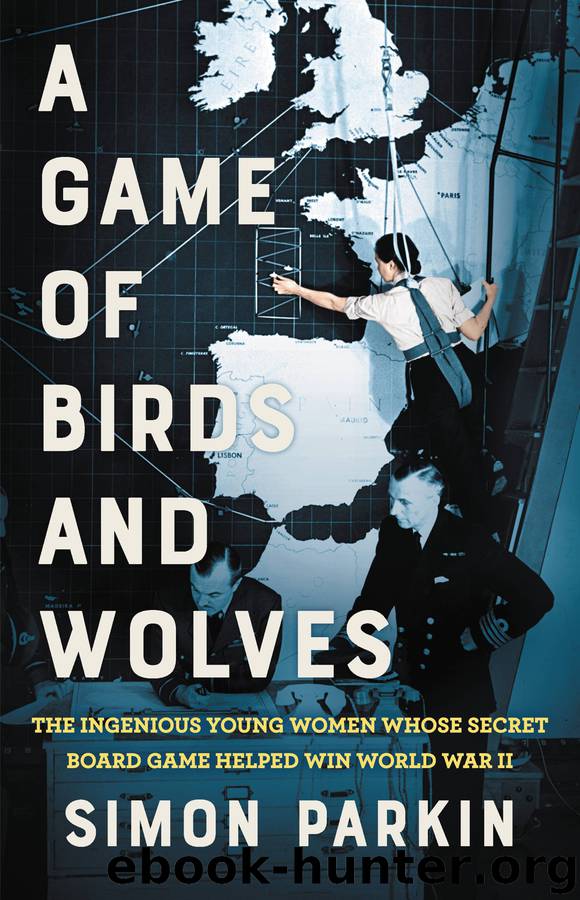A Game of Birds and Wolves by Simon Parkin

Author:Simon Parkin
Language: eng
Format: epub
Publisher: Little, Brown and Company
Published: 2020-01-27T16:00:00+00:00
Captain Walker’s interest in anti-U-boat tactics long pre-dated the war. In the 1920s, years before he was made a captain, Buttercup’s inventor had volunteered to undergo a course at HMS Osprey, the school of anti-submarine warfare at Portland naval base. Never reticent to criticise instructions that he considered to be ill conceived, Walker’s outspokenness earned him the respect of his contemporaries, and the misgivings of his superiors, who viewed his unmoderated candour as a character flaw.
When Walker was appointed to second-in-command of the battleship Valiant, he regularly clashed with his captain; a confidential Admiralty report described Walker as ‘lacking powers of leadership’. Resigned to the belief that he would not make captain, Walker returned to Osprey as commander in 1937. In the navy there was a small window in which every officer could be promoted to the next rank of seniority. Those who failed to earn promotion within the designated time frame were known as ‘passed over’. In peacetime, an officer who had been passed over could elect either to remain in the service at their existing rank till retirement age, or retire early with a modest pension and the opportunity to pursue a civilian career. Walker considered leaving the navy while he still had time to follow a new calling. As war approached, however, along with scores of other officers who had also been passed over, Walker was called upon to fill positions of importance.
Walker had long maintained that U-boats would become the principal threat to Britain’s survival. In his new posting he was given an office in Dover Castle and tasked with overseeing anti-submarine defences in the Channel, specifically the laying of extensive, underwater minefields designed to frustrate any German attempt to invade England from France. For Walker, who desperately wanted a ship to command, it was a disappointing appointment. As the months passed, Walker bombarded the Admiralty with requests to transfer to a ship. Each letter was met with another refusal. Finally, in March 1941, Walker travelled to London to meet Captain Creasy, director of anti-submarine warfare and an old friend, to make his request in person. Creasy was one of those few officers who knew the truth about Allied losses in the Atlantic, and the extent to which official statements about U-boat sinkings had been exaggerated. As such, he was keenly aware of the need for officers with experience of fighting U-boats to join the team at the newly formed Western Approaches HQ in Liverpool.
Walker may not have had this exact kind of hands-on experience, but his knowledge of tactical theory was expansive. Creasy listened to his friend’s arguments about why he should be given command of an escort ship and, at the end of the meeting, offered Walker an assurance that he would request a transfer. Six months later a signal arrived at Dover from the Admiralty ordering Walker to Liverpool. He was to assume command of HMS Stork for duties in the Atlantic. On arrival Walker found himself among ‘strangely assorted bedfellows’, as his biographer put it.
Download
This site does not store any files on its server. We only index and link to content provided by other sites. Please contact the content providers to delete copyright contents if any and email us, we'll remove relevant links or contents immediately.
| Civilization & Culture | Expeditions & Discoveries |
| Jewish | Maritime History & Piracy |
| Religious | Slavery & Emancipation |
| Women in History |
Cecilia; Or, Memoirs of an Heiress — Volume 1 by Fanny Burney(32561)
Cecilia; Or, Memoirs of an Heiress — Volume 2 by Fanny Burney(31958)
Cecilia; Or, Memoirs of an Heiress — Volume 3 by Fanny Burney(31944)
The Secret History by Donna Tartt(19097)
Sapiens: A Brief History of Humankind by Yuval Noah Harari(14392)
Leonardo da Vinci by Walter Isaacson(13339)
The Radium Girls by Kate Moore(12033)
Sapiens by Yuval Noah Harari(5374)
How Democracies Die by Steven Levitsky & Daniel Ziblatt(5221)
The Wind in My Hair by Masih Alinejad(5099)
Homo Deus: A Brief History of Tomorrow by Yuval Noah Harari(4921)
Endurance: Shackleton's Incredible Voyage by Alfred Lansing(4785)
Man's Search for Meaning by Viktor Frankl(4608)
The Silk Roads by Peter Frankopan(4537)
Millionaire: The Philanderer, Gambler, and Duelist Who Invented Modern Finance by Janet Gleeson(4481)
The Rape of Nanking by Iris Chang(4217)
Joan of Arc by Mary Gordon(4116)
The Motorcycle Diaries by Ernesto Che Guevara(4105)
Stalin by Stephen Kotkin(3970)
